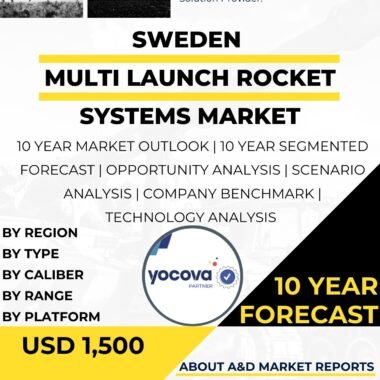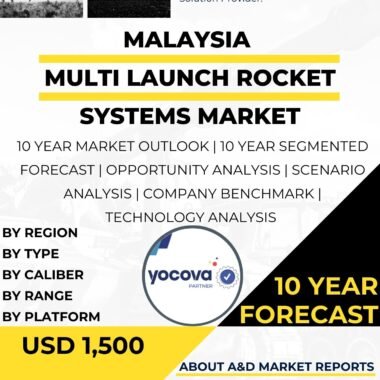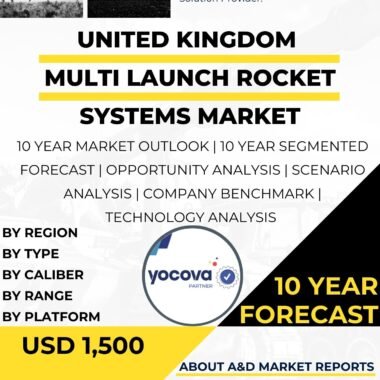Description
Germany Multiple Launch Rocket Systems (MLRS) market has been a significant and evolving segment within the country’s defense industry. MLRS are advanced artillery systems capable of launching multiple rockets or missiles in a rapid and precise manner, providing the German Armed Forces with enhanced firepower, strategic mobility, and operational flexibility. The deployment of MLRS offers Germany a potent and effective means of engaging a wide range of targets, including enemy positions, armored formations, and strategic assets.
The Germany MLRS market encompasses various MLRS platforms, including wheeled and tracked systems, each tailored to meet specific operational requirements. These advanced rocket systems play a critical role in modern warfare by providing responsive and accurate fire support to ground forces, conducting area saturation strikes, and engaging targets at extended ranges.
One of the primary drivers of the Germany MLRS market is the country’s commitment to maintaining a credible and capable artillery force. As a leading NATO member and a key contributor to the alliance’s collective defense efforts, Germany recognizes the importance of modern and effective MLRS capabilities to support its land forces and enhance overall deterrence.
The Germany MLRS market has also been influenced by technological advancements in rocket and missile systems. Ongoing research and development efforts have led to improvements in rocket motor technologies, guidance systems, and warhead effectiveness, enhancing the overall performance and precision of MLRS platforms.
Moreover, the Germany MLRS market is driven by the need to adapt to evolving threats and challenges in modern warfare. As adversaries develop sophisticated anti-access and area denial (A2/AD) capabilities, Germany must invest in next-generation MLRS systems with increased range, mobility, and countermeasures to maintain its operational advantage.
In recent years, there has been a growing emphasis on developing MLRS systems with modular and versatile designs. Modern MLRS platforms often feature interchangeable launch pods that can accommodate various types of rockets and missiles, allowing for mission-tailored payloads and reducing logistical burdens.
The export potential of German MLRS systems is another important aspect of the market. Germany’s reputation for producing high-quality defense equipment and its strong technological base make it an attractive supplier for other countries seeking advanced MLRS solutions. However, export decisions are subject to international regulations and political considerations, especially when it comes to sensitive military technologies.
Challenges faced by the Germany MLRS market include the need to balance investments in MLRS capabilities with other defense priorities. Artillery systems, including MLRS, can be resource-intensive to develop, procure, and maintain. Decision-makers must carefully prioritize investments to ensure that MLRS capabilities align with Germany’s broader defense requirements.
Additionally, the Germany MLRS market must address challenges related to sustainability and environmental impact. MLRS systems often use rocket propellants and explosive materials that can have adverse effects on the environment. As the global focus on sustainability and environmental responsibility grows, there is increasing pressure to develop cleaner and more environmentally friendly rocket propulsion and warhead technologies.
In conclusion, the Germany MLRS market is a significant and evolving segment within the country’s defense industry. Advanced MLRS capabilities play a crucial role in enhancing Germany’s artillery firepower, supporting ground forces, and maintaining strategic deterrence. The market is driven by Germany’s commitment to defense innovation, technological advancements in rocket and missile systems, and the need to adapt to evolving threats. As Germany continues to invest in research and development and explores modular and versatile MLRS solutions, the MLRS market is expected to play an increasingly pivotal role in shaping the country’s land warfare capabilities and contributing to global security.




